
Algorithm inventarium method-athon
Enric Senabre (Austrian Academy of Sciences); Eveline Wandl-Vogt (Austrian Academy of Sciences / Ars Electronica k4h); Matthew Battles (metaLAB (at) Harvard)
How can society's awareness and resilience around the operation and impact of algorithms be collaboratively expanded? From a cultural but also transdisciplinary perspective, there‘s still a general lack of knowledge about how algorithms surround us and determine everyday life in many areas, invisibly and secretly operating through our progressively digitized contexts. Although algorithms increasingly determine citizen‘s lives, as well as opportunities for innovation in cities, their usual articulation for progress and efficiency can present great bias, errors and counter effects.
Data session on policy and business Pitching
Ilkka Arminen, University of Helsinki
In the data session we will analyze, discuss and explore the organization of pitches available publicly in youtube. The data session will be realized online (e.g. in Zoom or Teams) and materials to be discussed will be shared in the session. The recorded pitches will be used as a material to discuss the process in which the idea of pitch is translated to the citizen audience and the innovation reconfigured through its alignment with the recipients. The organizer provides glimpses on the details of talk-in-interaction of the pitches and invites participants to share their views and also sharpen their analysis of the pitching as a practice. The discussion aims at specifying on how persuasive communitation of the policy or business idea is achieved. Not less importantly the goal is to reach an understanding of what are the key aspects influencing on the success of the pitch.
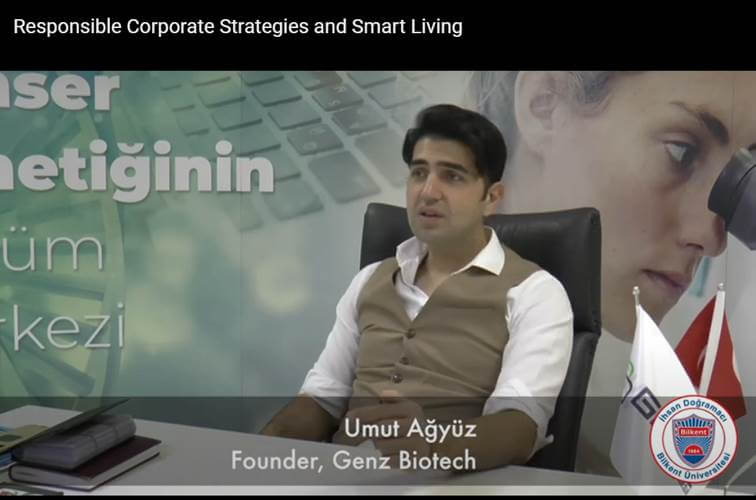
Robin Ann Downey, Bilkent University; Lutz Peschke, Bilkent University
This making and doing activity will focus on collecting and sharing demonstrations of Responsible Research and Innovation (RRI). This experiment is based on a short video project, which was designed to communicate RRI approaches to commercial stakeholders. The experimental video was an opportunity to consider relevant ways to apply RRI methods, assess the implications for knowledge making and imagine future responsible innovation communication tools. Rather than creating a video with a single voice, we interviewed innovators and distilled comments that fit with the RRI storyline.
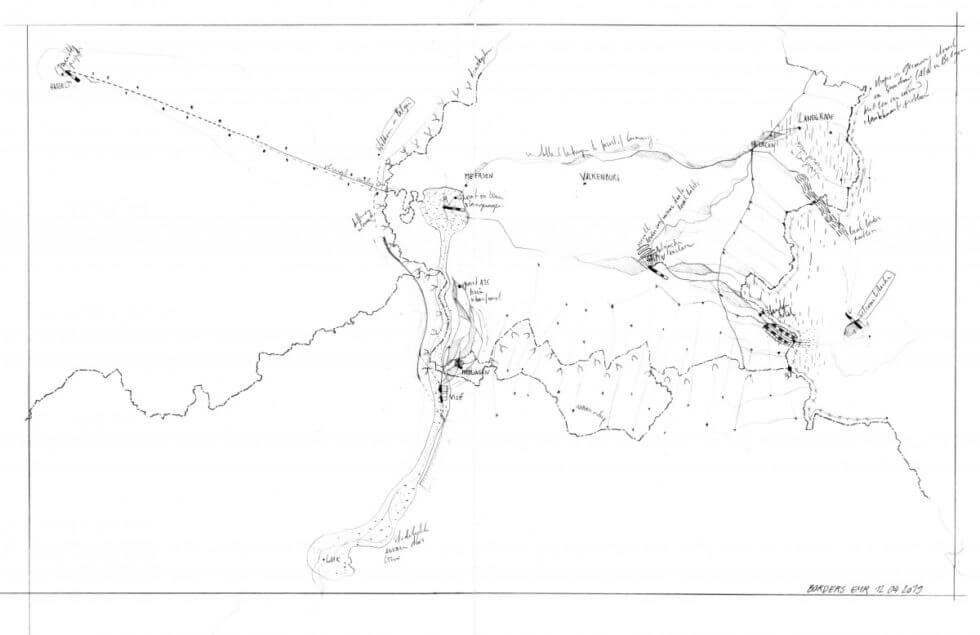
Ulrike Scholtes, UVA; Marlies Vermeulen, RESEARCH CENTRE FOR ARTS, AUTONOMY AND THE PUBLIC SPHERE
Ways in which bodies and spaces relate have gained increasing acknowledgement, interest and dedication in various sciences such as sociology, anthropology, science studies and artistic research (often under big words such as affects or affordances). Drawing on the material-semiotic proposition that bodies and spaces do not only relate, but co-produce each other, this workshop offers tools to articulate body-space entanglements. Two practitioners, experienced in map making and body work respectively, introduce drawing as an ethnographic technique to study bodies in spaces.
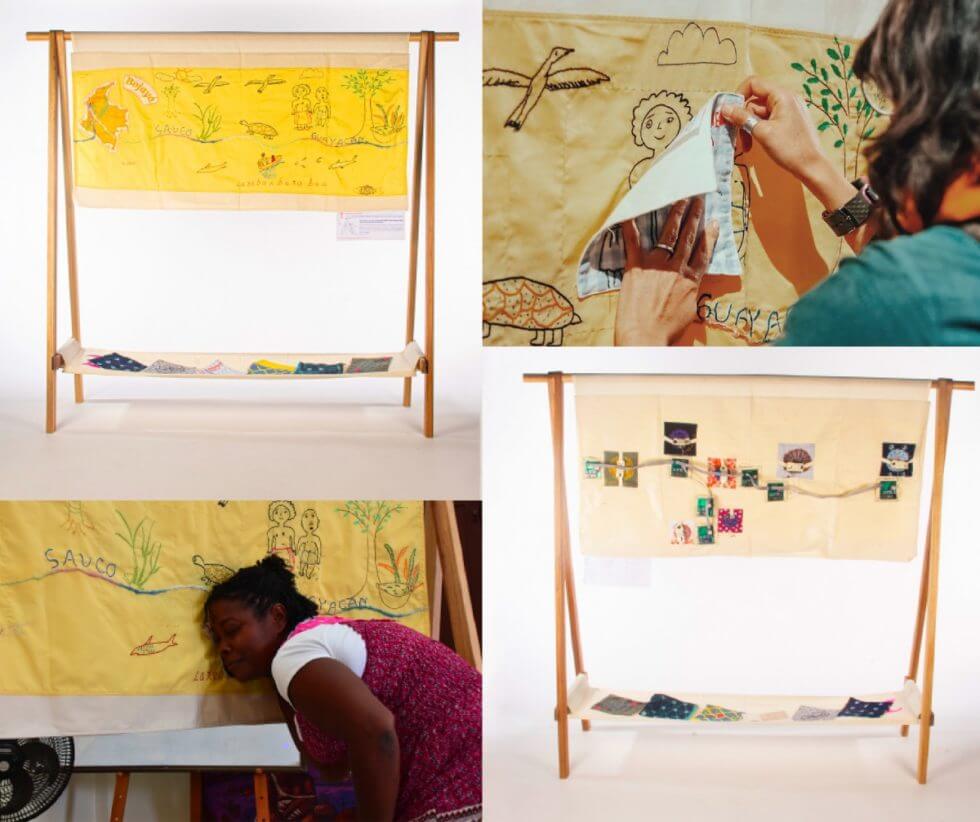
Jaime Patarroyo (Universidad de Los Andes), Nasif Rincón (Universidad de Los Andes), Camila Padilla (Universidad de Los Andes), Laura Cortés-Rico (Universidad Militar Nueva Granada), Tania Pérez-Bustos (National University of Colombia)
This exhibit is part of a project that aims to understand reconciliation in Colombia in dialogue with communities that, since having been severely affected by the armed conflict, have come together through textile crafts. In documenting memories of war, textile crafting generates spaces of common reflection and has a healing, restorative and constructive potential that negotiates memory and reconciliation. Thus, research on textile crafting (and with textile crafting) offers an opportunity to investigate reconciliation in a context that brings together everyday practice, the realities of the conflict, the possibility of healing and the rebuilding of the social fabric towards a post-conflict society.
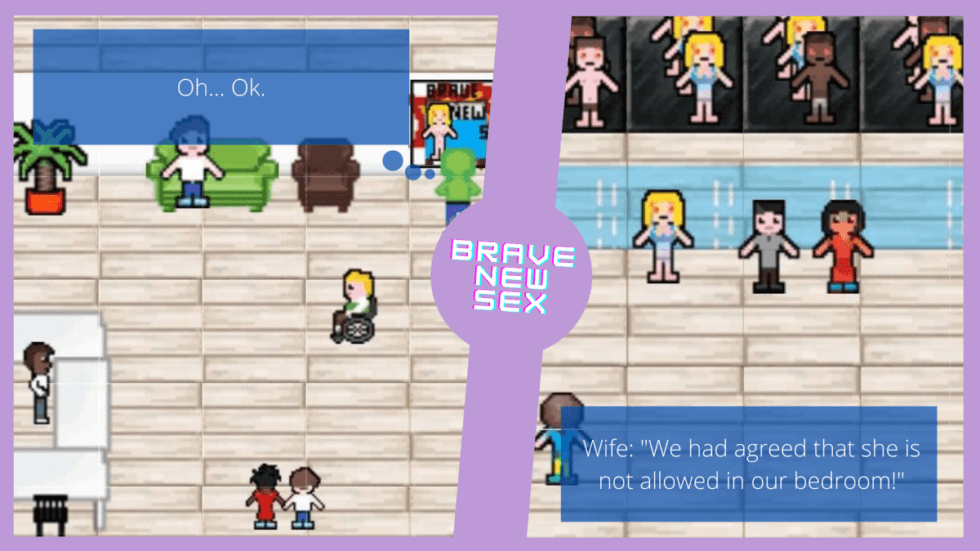
Maximilian Reiner, Technische Universität München; Maximilian Braun, Technische Universität München; Matthias Gabriel, Technische Universität München; Clara Valdés-Stauber, Technische Universität München; Xinghan Liu, Technische Universität München; Sarah Eidam, Technische Universität München
As a group of STS students we have created a video game based on the emerging theme of sex robots. Our motivation is that games offer virtual and interactive spaces where moral awareness can be raised through the storytelling and the players‘ decision making. This makes a game an appropriate place to embed ethical and sociological perspectives. Adopting robotics for sexual interaction as a case study builds on an emerging social controversy that skirts the notion of sexuality: e.g. the human and non-human boundary, dehumanization and legalization. Employing the method of research-creation, this project proposes responsible storytelling through video games as an STS practice.
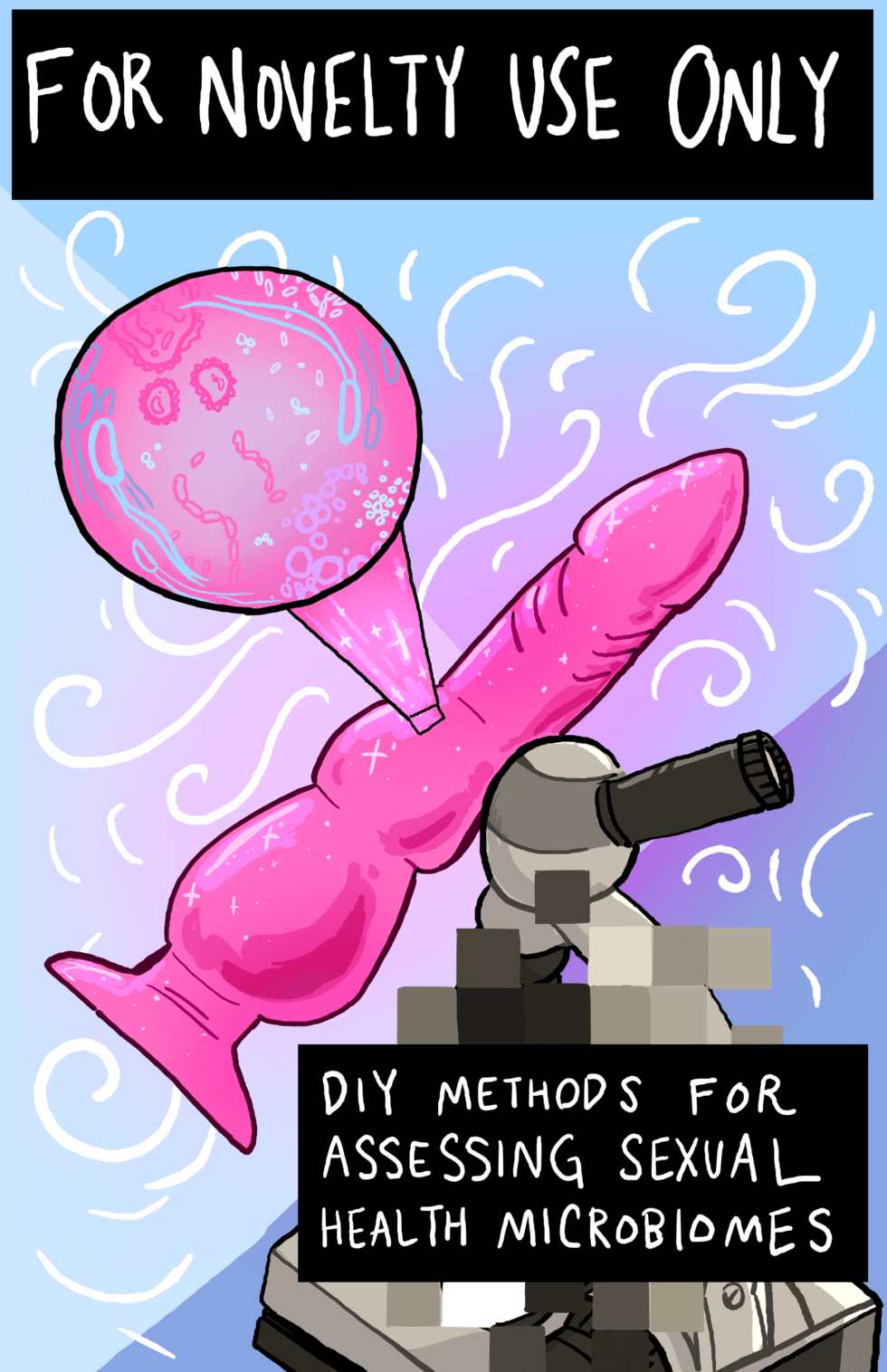
Hazelle Lerum, Rensselaer Polytechnic Institute; Runa Archer, Rensselaer Polytechnic Institute; Xen Riccardi, Rensselaer Polytechnic Institute
For Novelty Use Only is a DIY biopunk project that aims to inform the public about the dangers of the unregulated toxic sex toy industry. Our team of artists, engineers, and STS scholars have collaborated to create PDA Fabric, a fungal, algal, and bacterial medium made of three simple ingredients that can be used to identify the microbiotic inhabitants of a sex toy using only the naked eye. This citizen science project and its attendant Sexy Microbiotic Field Guide are accessible online and in print through our zine of the same name.
Is Another World Possible? Imagining a Post-Automobility Future Through an Anti-Motor Show
Richard Randell, Webster University; Robert Braun, Institut für Höhere Studien Vienna
An alternative voice that speaks also on automotive issues is the field of automobility studies, yet it is rarely heard, as it speaks not through material artefacts but almost exclusively through the written texts of specialized, arcane academic publications with restricted circulation. The goal of this project is to develop a design blueprint for an anti-motor show, the primary purpose of which is to explore possible post-automobility futures.
Lab from a Chip
Ross Dalziel
We ask questions as we build little logical maps together with Euglena gracilis; why are diodes so cheap, how do worms die? What organisms should we play with and how do old 7-inch vinyl records, Printed Circuit Boards (PCB‘s), Integrated circuits (IC‘s) A.K.A. silicon chips and other surplus domestic artefacts provide physical spaces to tell stories and learn critical knowledge? We explore this through ’kit culture‘, hands-on by using a prototype ’educational‘ kit and the emerging method of ’Interleaving Practices‘, part of artist-researcher Ross Dalziel‘s art-science practice and PhD research embedded in Lancaster University.
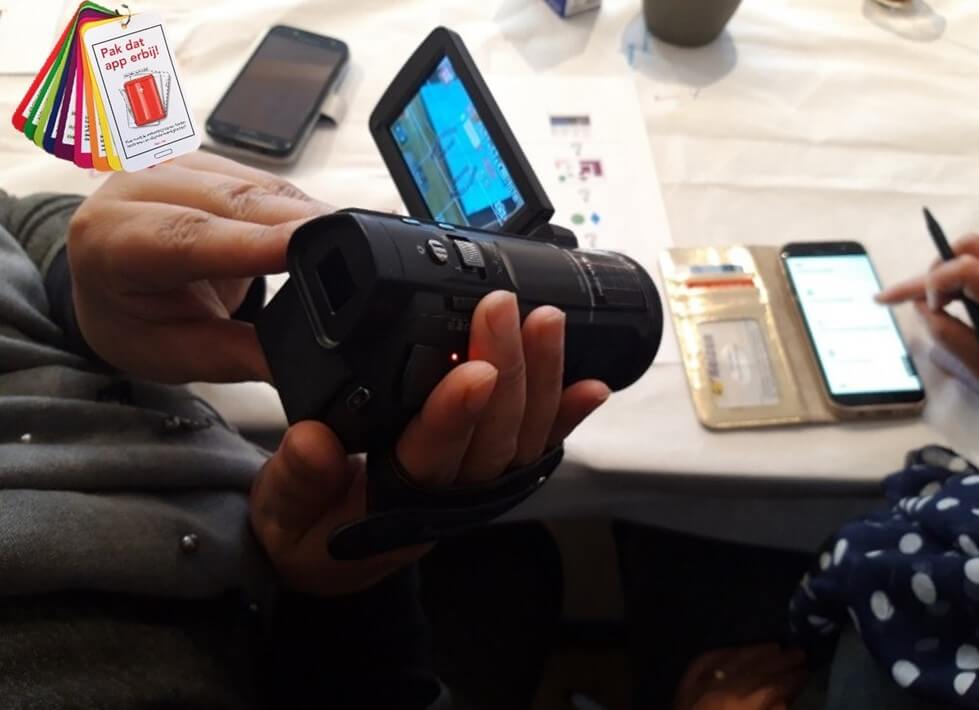
Nicole Sylvia Goedhart (Athena Institute, VU University, Amsterdam), Teun Zuiderent-Jerak (Athena Institute, VU Amsterdam), Christine Dedding (Metamedica, Amsterdam UMC-location VUmc), Jacqueline E.W. Broerse (Athena Institute, VU Amsterdam) j.e.w.broerse@vu.nl
In this feminist STS-informed Participatory Action Research (PAR) project, we co-created vlogs with women living in disadvantaged neighborhoods to unravel the complex interactions between ICT use and socio-demographics such as race, class, age, sexuality, and disability. Co-creating vlogs was successful for studying this complex interaction since the vlogs gave deep insights into difficulties the involved women experienced in the digitalized society. This project showed us that ICT education should match women‘s complex daily reality in which time and energy is limited. Also, ICT education seems to be more successful when located where they already go, for example, language training.
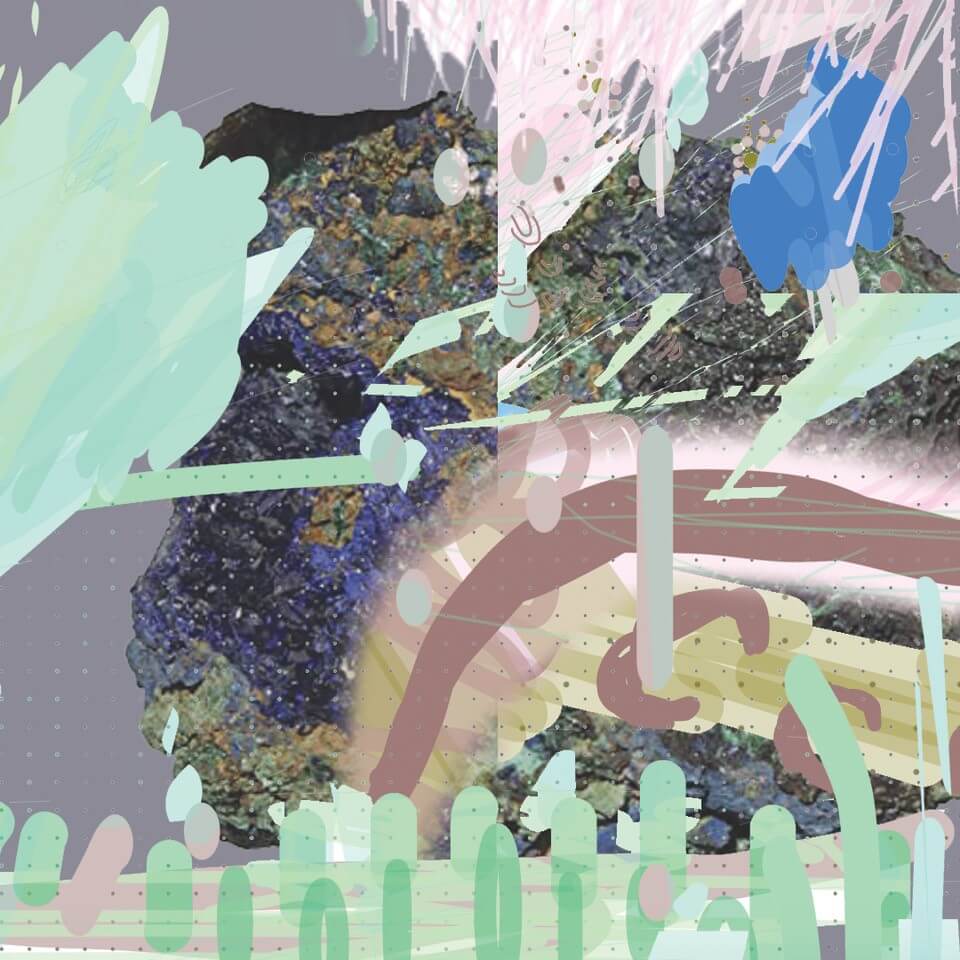
Loren Britton, University of Kassel; Helen Pritchard, Goldsmiths University of London
Have you ever tried to question your disciplinary field, institution, practice or methodology and failed? Are you frustrated with the apparatus holding in place the practices of knowing? Do you wonder why its so hard to practice change? This workshop is for you.
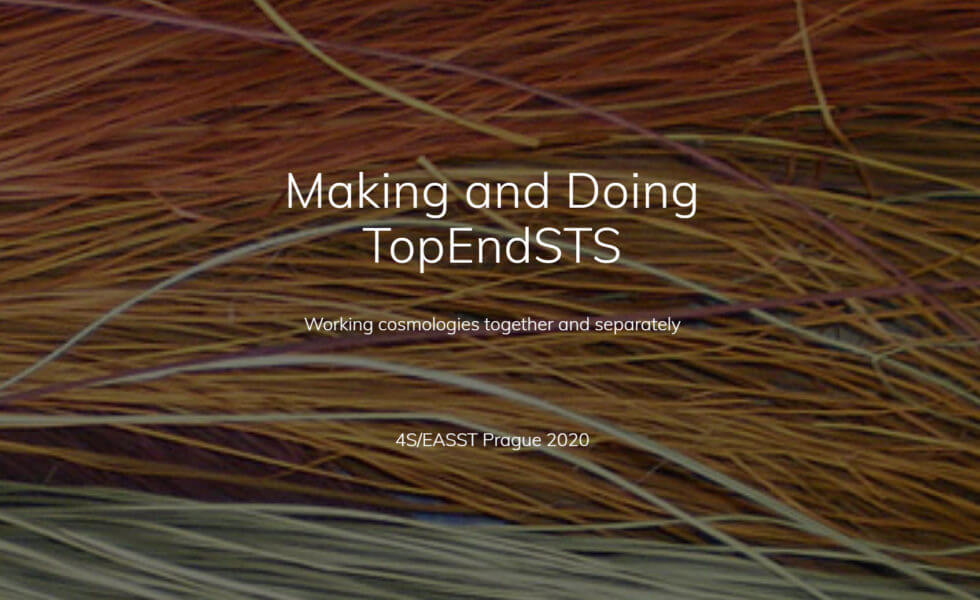
Michaela Spencer, Charles Darwin University; Cathy Bow, Charles Darwin University; Yasunori Hayashi, Charles Darwin University; Leonie Norrington, Charles Darwin University; Simon West, Charles Darwin University; Jennifer Macdonald, Charles Darwin University
The TopEndSTS collective are a diverse group of knowledge practitioners working in northern Australia. Our research arises at the intersection of Indigenous and other academic traditions, is carried out under the authority of Indigenous elders, involves complex arrangements of local politics and economy, and seeks to collaboratively generate research products that work in-place.
Making Food Futures Accessible Across Ages: Emerge 2020 – Eating at the Edges
Christy Spackman, SFIS – Arizona State University; David Guston, Arizona State University; Ed Finn, Arizona State University; Cynthia Selin, Technical University of Denmark; Jake Pinholster, ASU; Ruth Wylie, Arizona State University; Bob Beard, Bob Beard; Stephen Christensen, ASU; Joey Eschrich, Arizona State University; Nina Miller, ASU; Eliza Robinson, ASU; Rebecca Pringle, ASU; Melissa Waite, ASU; Diana Ayton-Shenker, Leonardo/ISAST; Cindy Ornstein, Mesa Arts Center
Emerge 2020 invited artists, scientists, innovators, activists, farmers, and cookers of all skills to join together in producing interactive artworks, exhibits, and performances that playfully explore what it means to Eat -- and not just anywhere, but rather at the Edge(s). Our one-day festival brought people of all ages together to traffic in a specific set of ideas and questions: What does it mean to eat, as a human or non-human, in a time of increasing environmental precarity?
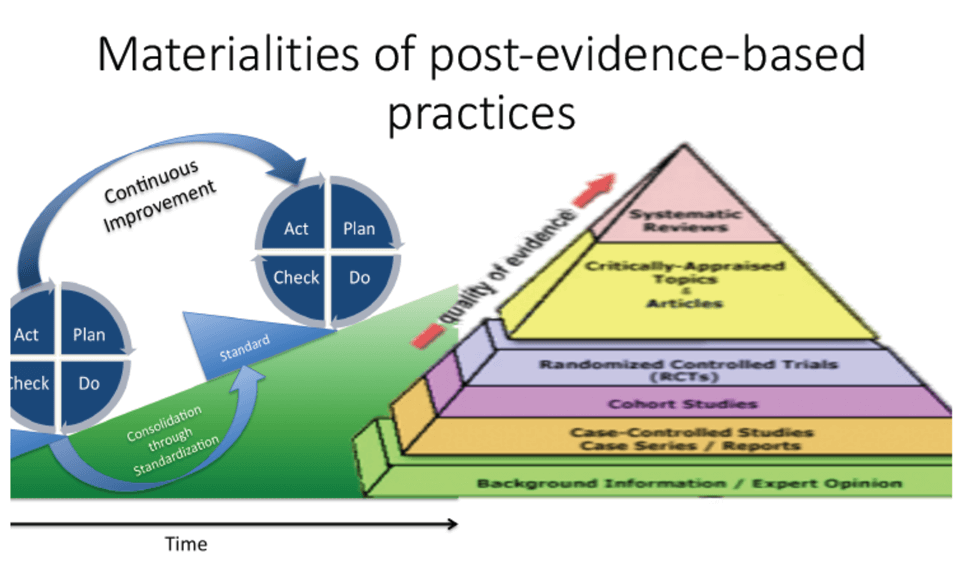
Morten Sager, Department of Philosophy, Linguistics and Theory of Science; Isabella Pistone, Department for Philosophy, Linguistics and Theory of Science, University of Gothenburg; Allan Lidström, Department for Philosophy, Linguistics and Theory of Science, University of Gothenburg; Teun Zuiderent-Jerak, Athena Institute, VU Amsterdam; Thomas Schneider, Bräcke Diakoni and Jönköping University; Lena Eriksson, Department for Philosophy, Linguistics and Theory of Science, University of Gothenburg; Ingemar Bohlin, University of Gothenburg
Together with changes in governance related to New Public Management, evidence-based practice (EBP) has amounted to a paradigm shift in the Swedish welfare sector and elsewhere concerning the management, monitoring and measurements of operations in health care, education and social care.
Open Educational Resources for STEM: Stimulating Reflection on Gender in Science and Technology
Goede Both, HU Berlin; Smilla Ebeling, HU Berlin; Sigrid Schmitz, HU Berlin
Our online portal Gendering MINT digital features a collection of open educational resources (OER) tailored to biology, chemistry, computer science, and physics students. These courses share a common emphasis on gender in STEM epistemic practices and cultures. STEM educators may enrich their teaching with insights from STS and Gender Studies. The portal also includes cross-disciplinary OERs on gender in technoscientific literacy and basic concepts from gender studies. Another course provides insights for gender equity actors and early-career researchers in STEM. The portal also offers a collection of statements from experts in STEM disciplines about gender research in their field.
Poking Holes in Borders with Tiny Machines
Evan Light, Glendon College, York University
This Making and Doing session presents two RaspberryPi-based projects being used for research on mass surveillance and border spaces. The Snowden Archive-in-a-Box (SAIB) is an offline wireless network and web server providing access to a replica of the Snowden Digital Surveillance Archive. Anybody in the vicinity can access the archive by connecting their wireless device to the Snowden Archive WiFi network and browsing to a website.
Soundchain - Blockchain Music
Pedro Jacobetty, The University of Edinburgh
The Soundchain music generator monitors online discourse about blockchain technology in real-time using the Twitter streaming API (filtered by the hashtag #blockchain). Tweets are interpreted in real-time by the previously trained topic model.
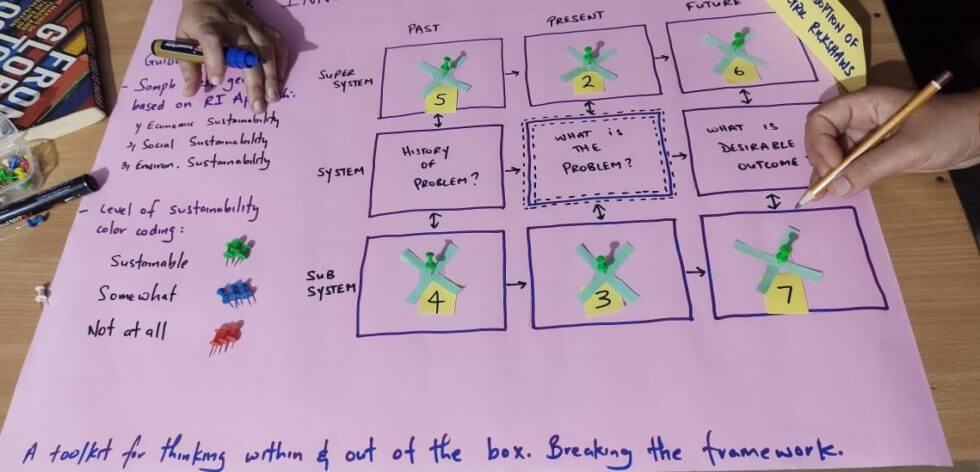
Vairaj Arjune, Centre for Studies in Science Policy, Jawaharlal Nehru University; Krishna Tripathi, Centre for Studies in Science policy, Jawaharlal Nehru University, New Delhi
As enthusiast TRIZ users, we propose an interactive activity-based project using a 3 x 3 matrix diagram with pre-formulated sample questions on the sustainability of emerging innovations. The activity is a mix of paper-based tables, computer-aided diagrams and puzzle configuration. With technology and innovation becoming an inherent component of modern societies, inculcation of the issue of sustainability in new emerging innovation is eminently crucial which in turn poses the questions: what is the meaning of sustainability in the innovation process? And what is sustainable innovation?
The Atlas of Research on Research: tracing how ideas, priorities and practices move
Helen Woods, University of Sheffield; James Wilsdon, University of Sheffield, Research on Research Institute (RoRI); Sarah de Rijcke, Centre for Science and Technology Studies (CWTS); Ludo Waltman, Centre for Science and Technology Studies (CWTS); Thomas Franssen, Centre for Science & Technology Studies (CWTS), Leiden University; Ismael Rafols, Centre for Science & Technology Studies (CWTS), Leiden University; Vincent Traag, Centre for Science and Technology Studies (CWTS)
Worldwide, interest is intensifying in how research is governed, and in how research systems can be made more open, inclusive and impactful. But diverse forms of "research on research are obviously nothing new. Rich seams of theoretical and empirical work from STS, innovation studies, and other disciplines inform these debates. More recently, heightened concern over the quality and reproducibility of research have prompted newer waves of work across the biomedical and behavioral sciences - often driven by researchers trying to address problems in their own fields.
